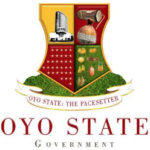Sixty years after Nigeria got independence, one of its iconic buildings which bear the symbol of freedom and self-determination for the country have been left to crumble.
Decades after Nigeria relocated its Federal Capital from Lagos to Abuja, the iconic Independence building otherwise known as Defence House in Lagos still awaits the much touted facelift and conversion to a World Trade Centre. Daily Trust reports that the move to concession the building has been mired in bureaucratic encumbrances.
As Nigeria celebrates the 60th anniversary of independence signalling an end to the reign of British colonialists, many Nigerians still express mixed feelings over the state of the independence monuments in Lagos State.
From one independence anniversary to another, the story has been the same with little or no change to the monuments in Lagos.
It would be recalled that the much celebrated independence was achieved with the lowering of the Union Jack and replacement with the green-white-green flag. This glamorous and remarkable event took place inside Tafawa Balewa Square (TBS), a 14.5-hectare (35.8-acre) ceremonial ground originally called “Race Course” before it was renamed after Abubakar Tafawa Balewa, the first Prime Minister, who received the constitutional instruments of Nigeria’s independence from the British colonialists.
The TBS, which is surrounded by a 25-storey Independence building, memorials for fallen soldiers and victims of the World War 1 and 2 as well as Nigeria Civil war; the old National Assembly building which has been converted to Lagos Liaison office, among other facilities, remains a towering monument and symbol of Nigeria’s freedom.
The TBS arena which was hitherto managed by a concessionaire, BHS International, is always a beehive of commercial activities. It usually played host to many high profile events, weddings, conferences until COVID-19 came and the attendant restriction on large gatherings.
The iconic 25-storey Defence Building which used to be the tallest storey building in Nigeria with its imposing size remains a source of concern to many. The building located on the popular Broad Street is also known as the Ministry of Defence Complex which was completed in 1961 shortly after Nigeria attained independence.
It is standing on 23 floors above the ground level and at an estimated height of 103 metres (338ft). The building was once occupied by many prominent Military leaders in Nigeria but several efforts to give it a facelift are yet to materialise and it has remained a shadow of itself since the relocation of Nigeria’s Federal Capital to Lagos in December 1991.
In its heyday, the building commissioned by the British Government as a support for Nigeria’s independence was like today’s Aso Villa and Ministry of Defence headquarters in Abuja. The highly fortified building was occupied by various heads of state and military top shots, who used the buildings as offices. The Defence House was dreaded by civilians. No one dared wandered around the building aimlessly without being challenged.
That was the state of the building until 1991-1992 when the seat of power was relocated to Abuja by the military administration of General Ibrahim Babangida and gradually the edifice became deserted as the defence authorities relocated to the new Federal Capital. The once busy building then lost the glamour and the usual hustle and bustle.
The inferno that gutted part of the building in 1993 was a major setback and the last straw. After the fire, the building became completely deserted, drab and unoccupied till today.
The walls are shaky and windows shattered largely due to disuse.

“It needs lot of money to come back to life. It would require a comprehensive rehabilitation and probably bringing down the structure partially if not completely,” a source told Daily Trust.
Efforts to rebuild it have faced several bureaucratic impediments. Daily Trust reports that in 2005, the building was designated as a National and International Business Centre which is a World Trade Centre equivalence but 15 years after, this is yet to be realised while the building remains abandoned even with the gargantuan real estate value on an astronomical rise. According to real estate experts, the value of the building in such a choice area would have fetched the nation millions of naira annually if put to optimal use as it could be converted to office space or even hotel. But this is a decision to be taken after the much anticipated face lift.
To many, the Independence Building is just one out of many abandoned federal government buildings in Lagos State after the relocation of the Federal Capital to Abuja.
An official of the Lagos State government under the administration of Governor Akinwunmi Ambode, had declared that the Federal Government abandoned dozens of properties in the state after the relocation of the capital territory to Abuja. Others not abandoned are not optimally utilized to serve as revenue earners for the country.
This was why experts lauded the recent handover of the underperforming national theatre to the Central Bank of Nigeria (CBN) and Bankers’ Committee for proper management.
Acting President of the International Facility Management Association (IFMA), Nigeria Chapter, Mr. Segun Adebayo, advised the government to replicate the handover of National Theatre to the Independence building and other national monuments scattered in Lagos and across the country.
He said all the facilities would be put to better and more profitable use with the engagement of professional facility managers, charging the Federal Government to activate “Sustainability Road Map” to revamp the abandoned facilities.
Daily Trust reports that following the termination of the TBS contract with the former concessionaire and the Federal Government taking over the management of the TBS, there has been a renewed drive to revive the building through a public private partnership (PPP) arrangement.

Managing Director/Chief Executive Officer of the TBS Management Board, Dr. Bayero Usman Jaafar, who spoke with our correspondent, said the TBS board hitherto applied for funding to redevelop the building. He said instead the government opted for a PPP arrangement which is currently being explored.
“So we are exploring the PPP option and the International Concession Regulatory Commission (ICRC) has given us the nod. They have given us the go-ahead to appoint a transaction adviser. In 2014, the TA was approved by the Federal Executive Council (FEC) to midwife the PPP. Last year, three companies were shortlisted to submit proposals,” he said.
According to him, the process was truncated by the COVID-19 pandemic which delayed the presentation of technical and financial bid.
“Hopefully before the end of the year, barring any unforeseen circumstance, the process would be concluded so that the concessionaire can emerge. As soon as we select the concessionaire, it would be forwarded to FEC for the final approval,” he added.

 Join Daily Trust WhatsApp Community For Quick Access To News and Happenings Around You.
Join Daily Trust WhatsApp Community For Quick Access To News and Happenings Around You.


